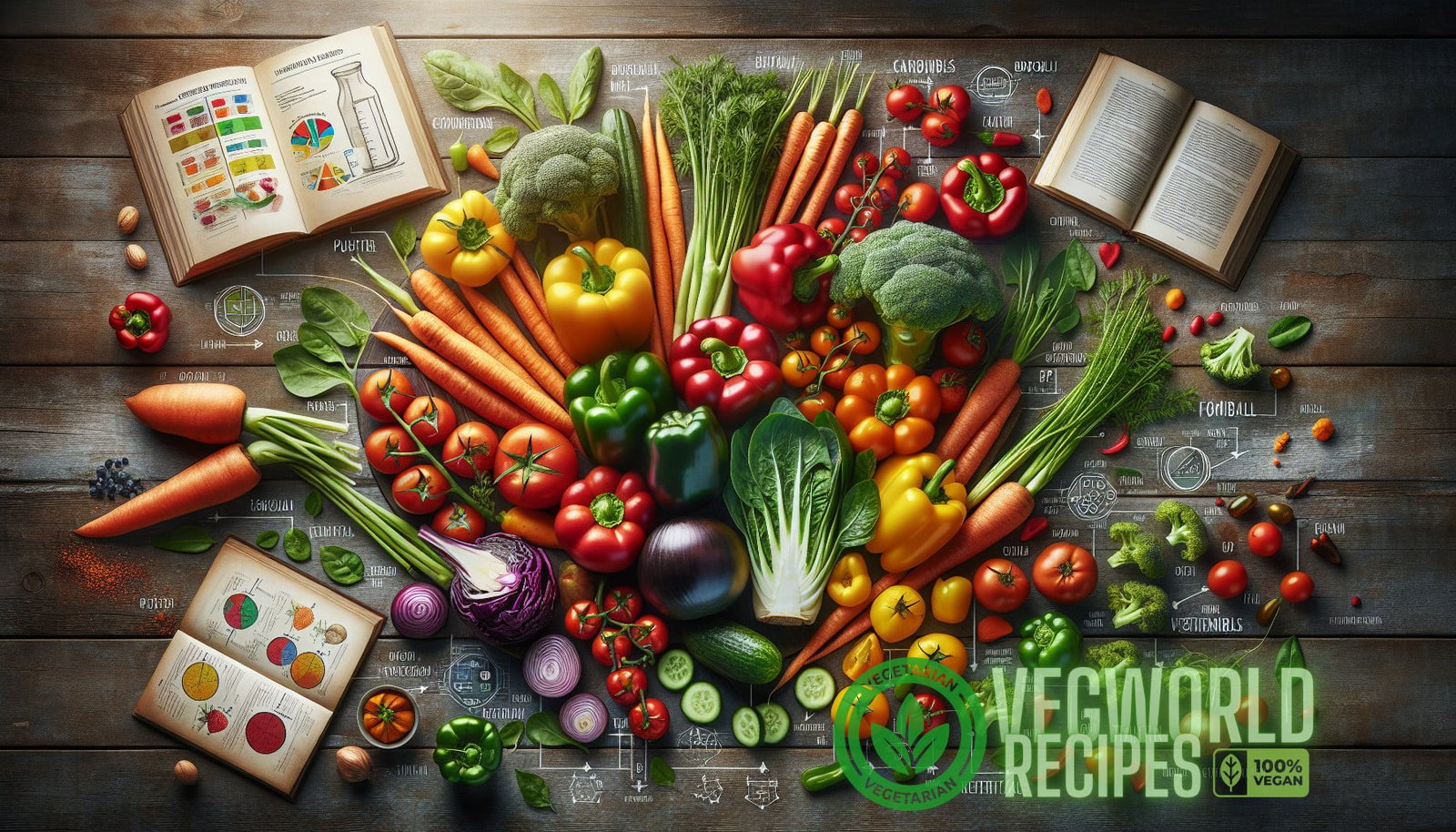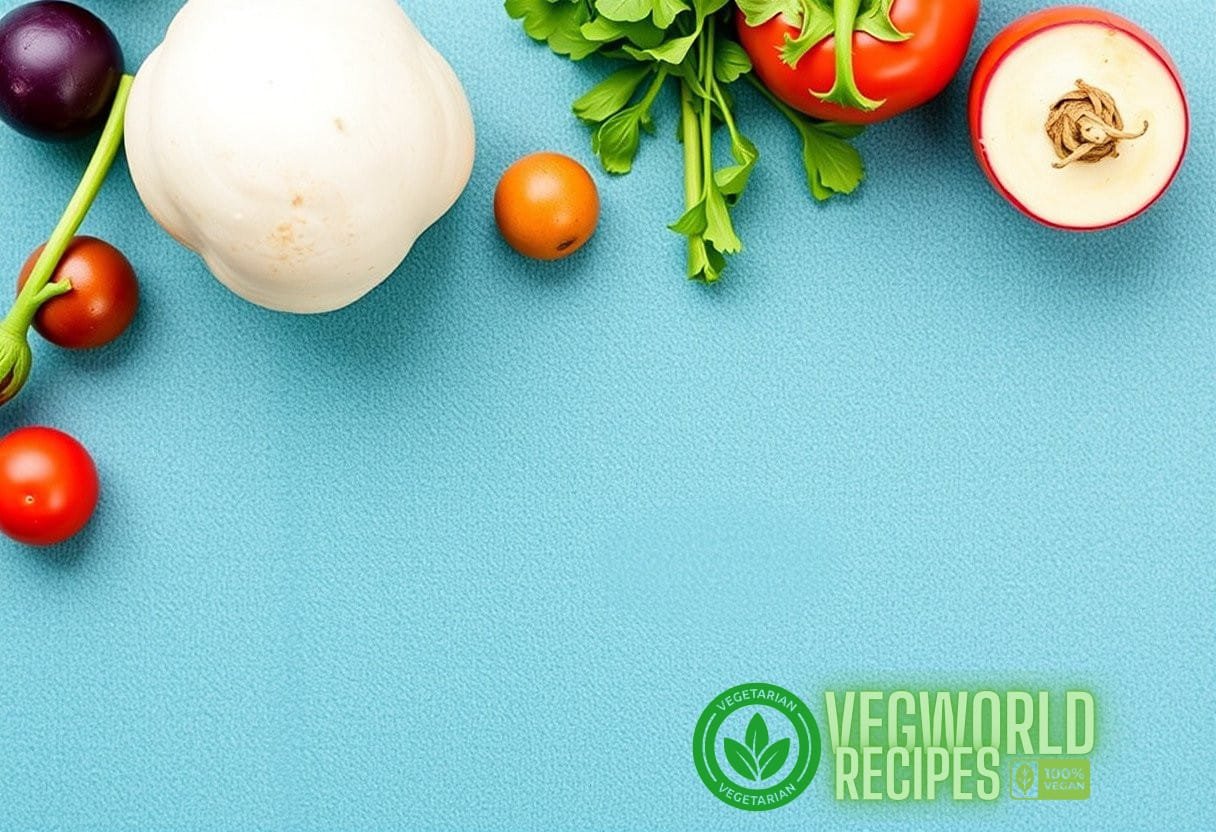Unearthing the Nutritional Benefits of Seasonal Vegetable Pairings: Enhancing Flavor and Health in Every Season
As we delve into the world of culinary delights, it becomes evident that seasonality plays a significant role in the flavors and nutritional benefits we can extract from our food. Eating seasonal produce not only enhances the flavors of our meals, but it also ensures that we are maximizing the nutritional benefits of the fresh fruits and vegetables available each season.
Seasonal pairings are an essential aspect of culinary exploration. The art of combining two or more seasonal vegetables that complement each other in flavor, texture, and nutritional value can elevate a dish to new heights. In this article, we will explore the nutritional benefits of seasonal vegetable pairings and how they can contribute to both flavor and health in every season.
The Importance of Eating Seasonally
Eating seasonally has numerous advantages, including:
- Increased flavor: Seasonal produce is harvested at the peak of its ripeness, resulting in richer and more vibrant flavors. Whether it’s the sweet juiciness of a summer tomato or the earthy sweetness of a winter squash, seasonal fruits and vegetables are bursting with flavor.
- Enhanced nutritional value: Seasonal produce is often fresher and contains higher levels of essential vitamins, minerals, and antioxidants. The longer produce sits on store shelves or is transported long distances, the more its nutritional content diminishes.
- Supporting local farmers: By eating seasonally, you can support local farmers and contribute to your community’s economy. Buying from local producers reduces our carbon footprint by reducing transportation distances.
- Cost savings: Seasonal produce tends to be more abundant, which often results in lower prices. When fruits and vegetables are in season, they require fewer resources to grow and are more readily available, making them more affordable for consumers.
- Ecological sustainability: Eating seasonally reduces the energy consumption and carbon emissions associated with transporting and storing out-of-season produce. It also promotes biodiversity, as seasonal crops are grown in harmony with nature’s natural cropping cycles.
Seasonal Vegetable Pairings for Optimal Health
Seasonal vegetable pairings can offer not only a delightful variety of flavors but also a range of health benefits. By combining specific vegetables, we can create a harmonious balance of nutrients that can promote overall well-being. Let’s delve deeper into some popular seasonal vegetable pairings and their nutritional benefits:
Spring Pairings
Spring brings a fresh array of vegetables bursting with vibrancy and vitality. Some popular spring pairings include:
- Asparagus and peas: Asparagus and peas are both rich in vitamins A, C, and K, as well as folate and fiber. This pairing is not only visually appealing but also provides a hearty dose of antioxidants and nutrients that support healthy digestion and immune function.
- Beets and radishes: The earthy sweetness of beets pairs perfectly with the peppery bite of radishes. Both vegetables are packed with antioxidants, fiber, and essential minerals. This pairing supports cardiovascular health, aids in detoxification, and promotes healthy digestion.
- Spinach and strawberries: This unlikely combination creates a refreshing and nutrient-packed salad. Spinach is a nutritional powerhouse, rich in iron, calcium, and vitamins A and C. Strawberries add a touch of sweetness while providing additional vitamin C and antioxidants.
For more delicious seasonal recipes, check out this article.
Summer Pairings
Summer brings an abundance of colorful vegetables that are perfect for light and refreshing meals. Some popular summer pairings include:
- Tomatoes and basil: This classic pairing is the epitome of summer. Tomatoes are a great source of vitamins A and C, as well as lycopene, a powerful antioxidant. Basil adds a burst of flavor and is known for its anti-inflammatory properties.
- Zucchini and corn: Both zucchini and corn are low in calories and rich in fiber, vitamins, and minerals. This pairing is not only delicious but also promotes healthy digestion and supports weight management.
- Cucumbers and watermelon: This hydrating pairing is perfect for hot summer days. Cucumbers are packed with water, while watermelon offers a refreshing and sweet taste. Both fruits are low in calories and high in vitamins and antioxidants.

Learn more about the science of flavor and how to unlock hidden secrets in seasonal vegetable dishes in this article.
Fall Pairings
Fall brings a bounty of hearty and comforting vegetables that are perfect for warming dishes. Some popular fall pairings include:
- Butternut squash and sage: Butternut squash is rich in vitamins A and C, as well as fiber and potassium. Sage complements the sweetness of the squash and adds a savory and earthy flavor. This pairing is perfect for hearty soups and roasted vegetable medleys.
- Brussels sprouts and bacon: Brussels sprouts are packed with vitamins K and C, as well as fiber and antioxidants. The addition of bacon adds a smoky and savory flavor, making this pairing a delicious side dish for any fall meal.
- Pumpkin and cinnamon: This classic fall pairing is not only delicious but also nutritious. Pumpkin is a great source of vitamins A and C, fiber, and antioxidants. Cinnamon adds warmth and enhances the natural sweetness of the pumpkin.
Winter Pairings
Winter vegetables bring a sense of coziness and nourishment to our meals. Some popular winter pairings include:
- Carrots and parsnips: Carrots and parsnips are both root vegetables that are packed with vitamins, minerals, and fiber. They provide a natural sweetness and add a comforting element to stews and roasted vegetable dishes.
- Kale and winter squash: Kale is a nutrient powerhouse, rich in vitamins A, C, and K, as well as calcium and antioxidants. Winter squash, such as acorn or butternut, adds a creamy and slightly sweet flavor to this pairing.
- Red cabbage and apples: Red cabbage is known for its vibrant color and high vitamin C content. Apples add a touch of sweetness and crunch. This pairing is not only visually appealing but also provides a healthy dose of antioxidants and fiber.
The Nutritional Benefits of Seasonal Vegetable Pairings
When we combine seasonal vegetables, we create a harmony of flavors, textures, and nutrients that can have a profound impact on our health. Here are some key nutritional benefits of seasonal vegetable pairings:
- Vitamins and Minerals: Different vegetables offer a wide range of vitamins and minerals. By pairing complementary vegetables, we can ensure we are consuming a diverse array of essential nutrients that support overall health.
- Disease Prevention: Seasonal vegetables are rich in antioxidants, which help protect against oxidative stress and reduce the risk of chronic diseases such as heart disease, cancer, and diabetes.
- Fiber: Many seasonal vegetables are high in fiber, which promotes healthy digestion, aids in weight management, and supports heart health.
- Hydration: Certain vegetables, such as cucumbers and watermelon, have a high water content, which helps keep us hydrated and supports overall well-being.
- Immune Support: Seasonal vegetables are often rich in vitamins A and C, which are important for supporting a healthy immune system. By combining vegetables that are high in these vitamins, we can maximize their immune-boosting benefits.
Conclusion
Exploring the nutritional benefits of seasonal vegetable pairings allows us to tap into the vast array of flavors and health benefits each season has to offer. By embracing the art of combining two or more seasonal vegetables, we can create delightful dishes that not only tantalize our taste buds but also nourish our bodies. So, as you embark on your culinary journey, remember to embrace the beauty of seasonality and enjoy the seasonal pairings that nature has lovingly provided.
For further information on seasonal recipes, visit our other articles at https://vegworldrecipes.fun/seasonal-recipes/seasonal-veggie-delights/ and https://vegworldrecipes.fun/seasonal-recipes/the-science-of-flavor-unlocking-the-hidden-secrets-to-exquisite-seasonal-vegetable-delicacies/.
References:
- Seasonal food. (2022, March 15). In Wikipedia. Retrieved April 27, 2022, from https://en.wikipedia.org/wiki/Seasonal_food


